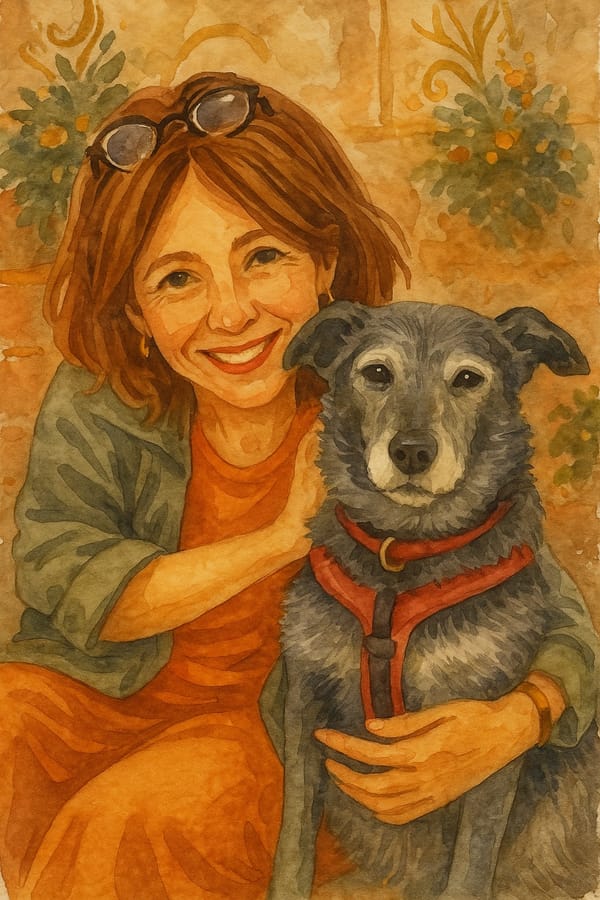Fighting loneliness through cups of tea and conversation
In a small backroom behind a Wigan charity shop, tea, laughter and quiet kindness offer a powerful response to loneliness.
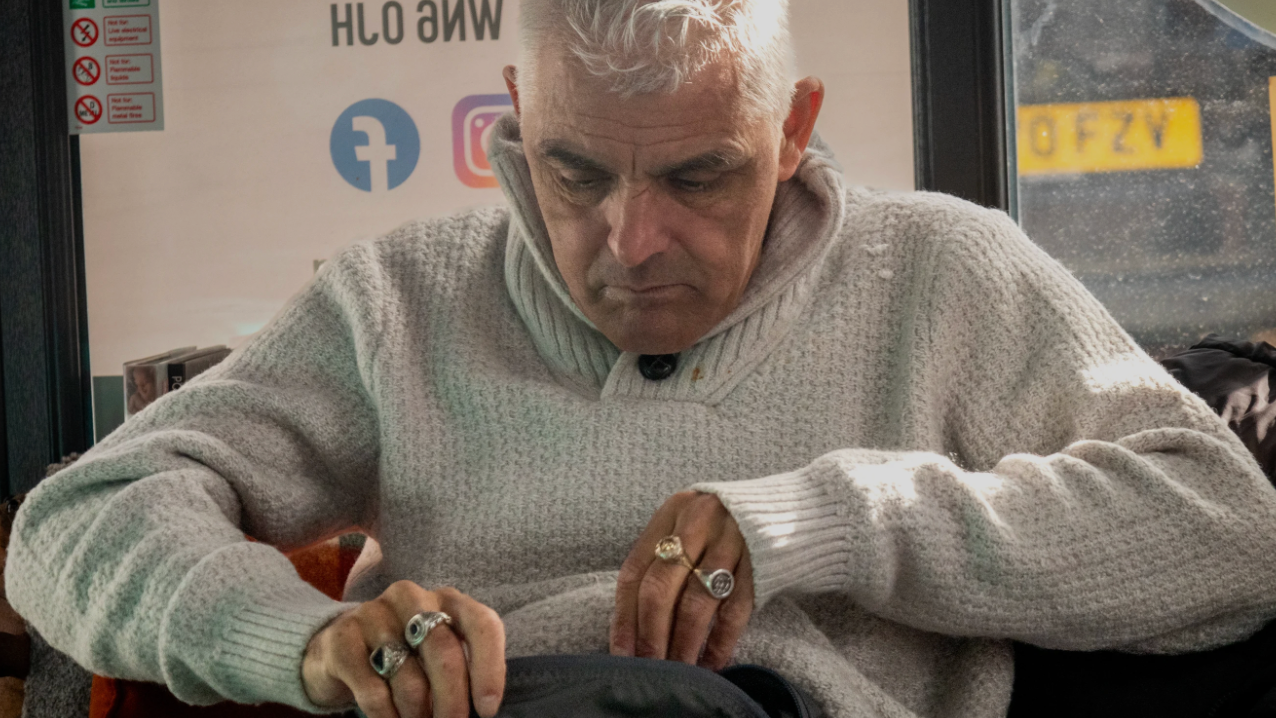
“Biscuit?” Margaret, a volunteer, asks, her voice soothing and inviting. Laura smiles but shakes her head. “Honestly”, she says, her bright smile widening amid the cheerful clatter of cups and plates, “I get waited on hand and foot here.”
At first glance, it's just a modest backroom tucked behind the Daffodils Dreams charity shop in Wigan, nothing fancy. But every Wednesday and Friday from eleven to two, it transforms into something more: a place where laughter flows as freely as tea, and where the simple offer of a biscuit carries more weight than it seems.
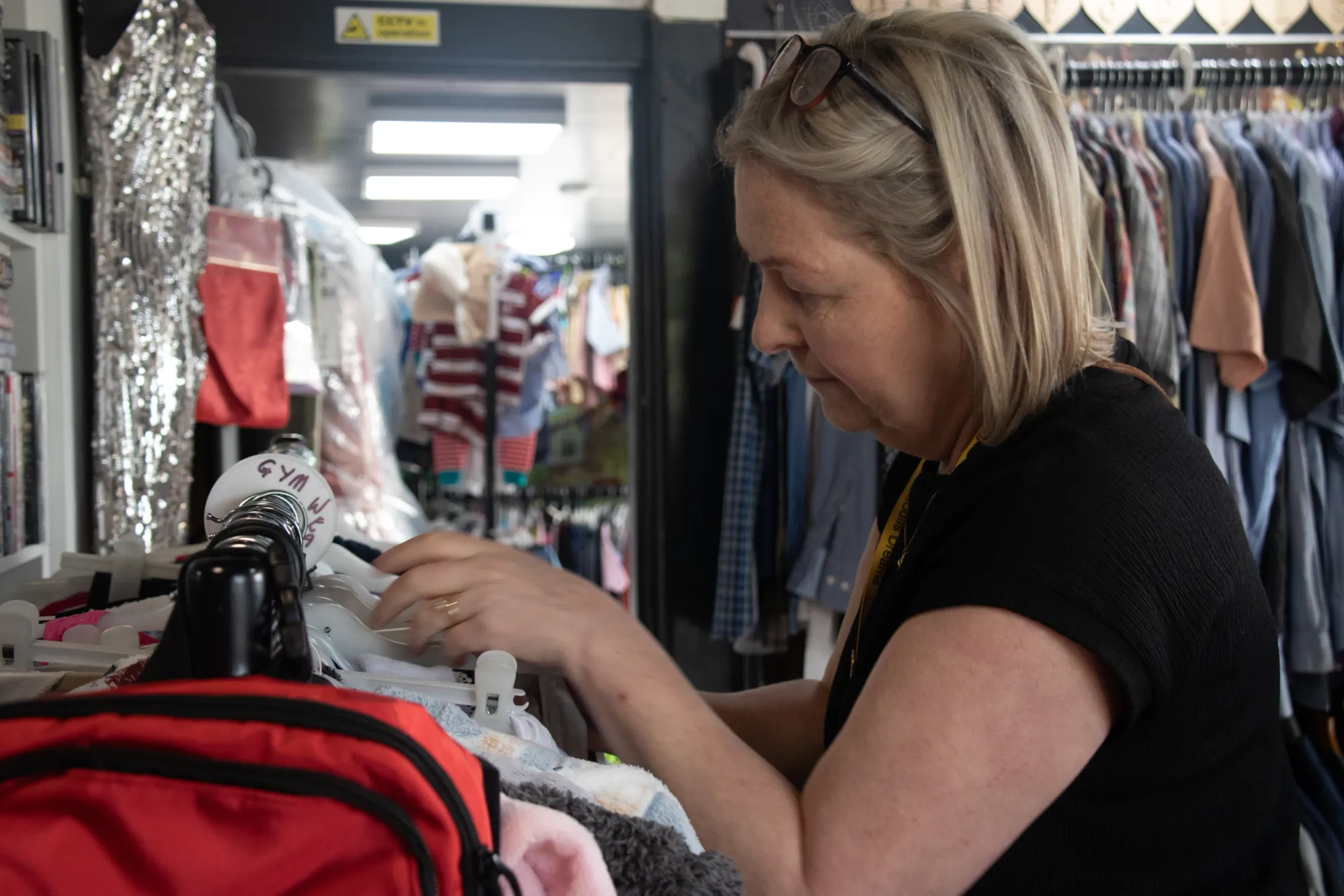

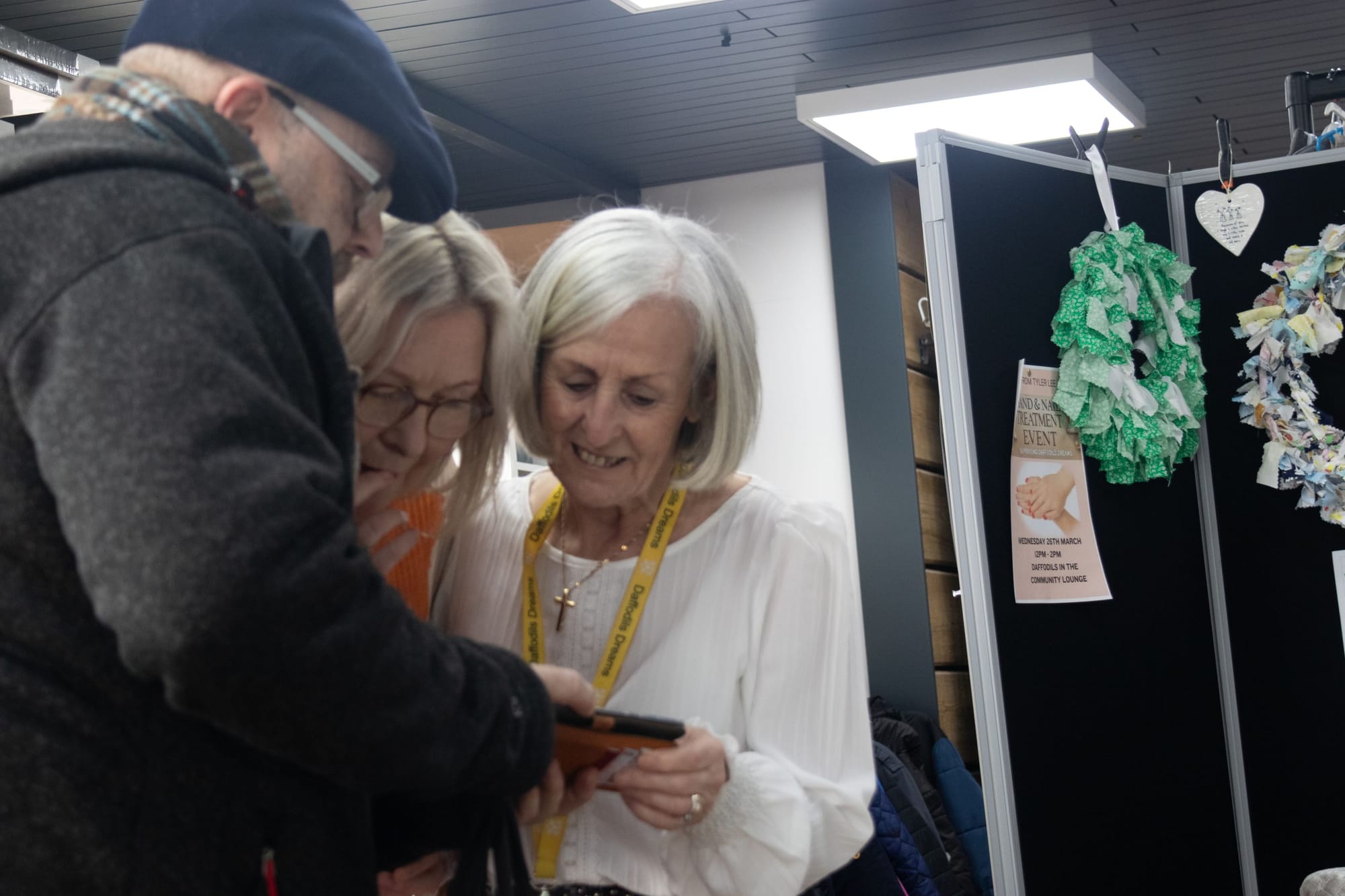
Photos by Lois Barnett
The backroom at Daffodils Dreams doubles as a gathering spot for people to connect, share a meal, and find friendship in a familiar, friendly setting.
Loneliness and isolation are increasingly recognised as a public health concern. The World Health Organisation warns of the long-term impact, linking chronic loneliness to the risk of stroke, heart disease, depression and early death, likened to the effect of smoking 15 cigarettes a day. Yet it's a subject many are ashamed to admit.
According to the National Office for Statistics, around 25% of adults felt lonely “often” or “some of the time. COVID-19 caused us to confront loneliness in a new way. In 2016, 5% of adults were feeling lonely “often or always.” By February 2021, this had risen to 7% in a report by the Mental Health Foundation. While loneliness is commonly associated with older generations, data shows that it is young people aged 16 to 24 who report the highest levels. A combination of digital communication, economic uncertainty, and shifting social norms has all contributed to feelings of isolation among younger groups.
Socio-economic disadvantage is another factor. People living in deprived areas, such as parts of Wigan, are more likely to be affected, facing not only financial strain but also the emotional strain of disconnection.
Social isolation does not just sting; it hurts and harms. It is linked to anxiety, poor sleep, reduced immunity and worsening mental health. Recognising this, the UK government introduced its Loneliness Strategy in 2018, pledging to fund local solutions and support “social prescribing.”
But critics argue that these efforts are piecemeal and underfunded, not going far enough. A policy briefing by the Mental Health Foundation notes that while the 2018 strategy laid important groundwork, it has not been matched by sustained and coordinated investment in public health infrastructure.
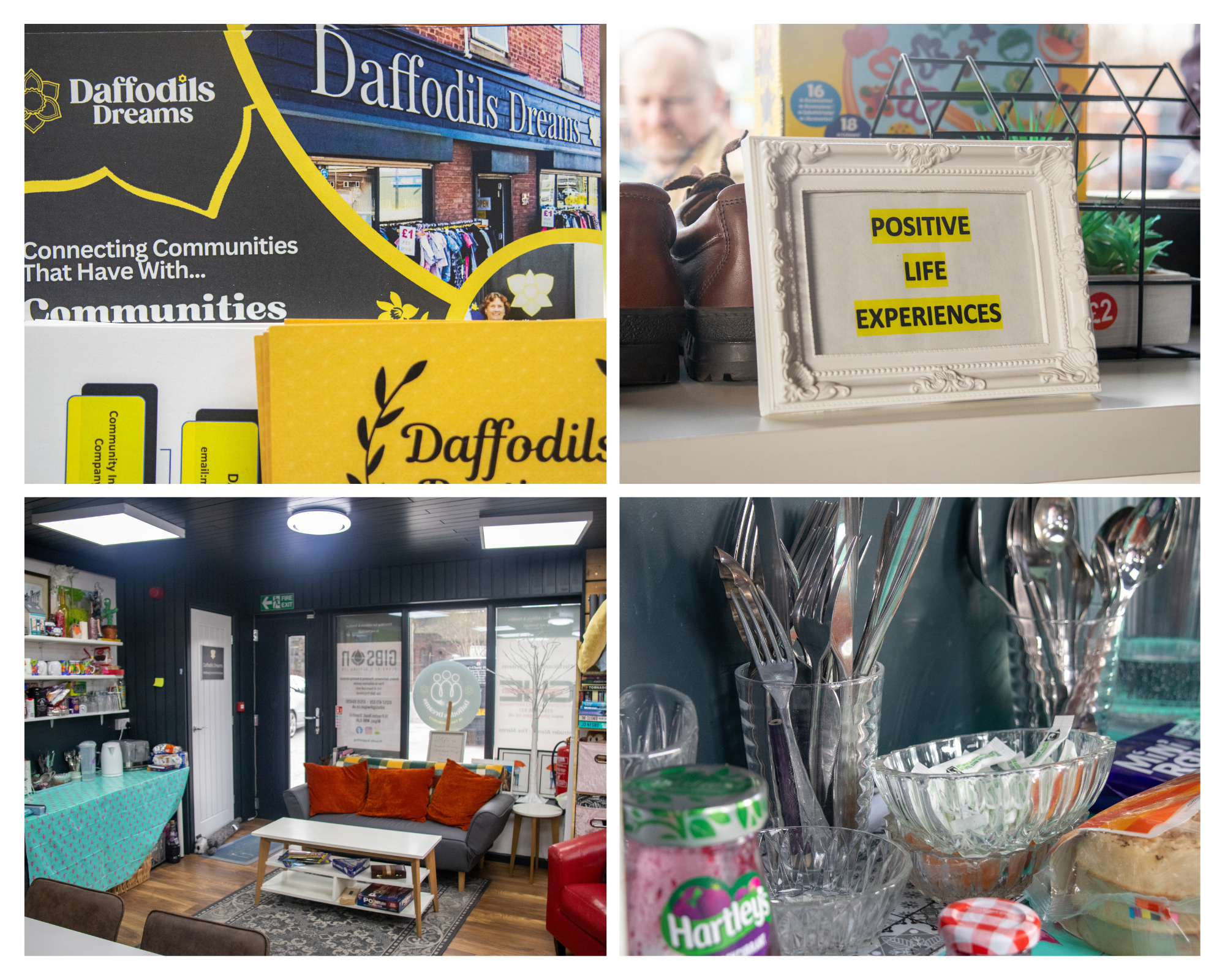
This means grassroots initiatives such as Daffodils Dreams carry the responsibility. Well known in the area for its support of local families, the organisation runs a vibrant community boutique, with proceeds helping to fund its twice-weekly lounge. The lounge offers something quieter and just as essential: a place to be seen. Here, conversations over a crumpet offer connection, a place to nest for those carrying a heavy weight alone.
Laura, a regular visitor since her cancer diagnosis, calls it a “haven”.
“I’ve been coming here for over a year,” she says. “The volunteers are lovely. They just get it. And it's not just me, I know my mum can come too and feel supported.”
She pauses, reflecting on her experience of being misdiagnosed.
“I was living in limbo for months, not knowing if I was slowly dying or not. This place gave me peace, somewhere I breathe.”
Margaret Dunn, a long-time volunteer at Daffodil's Dreams, sits in the very space that opens its doors twice a week as a community hub. "I enjoy making people feel welcome," she says, simply summing up why she volunteers.
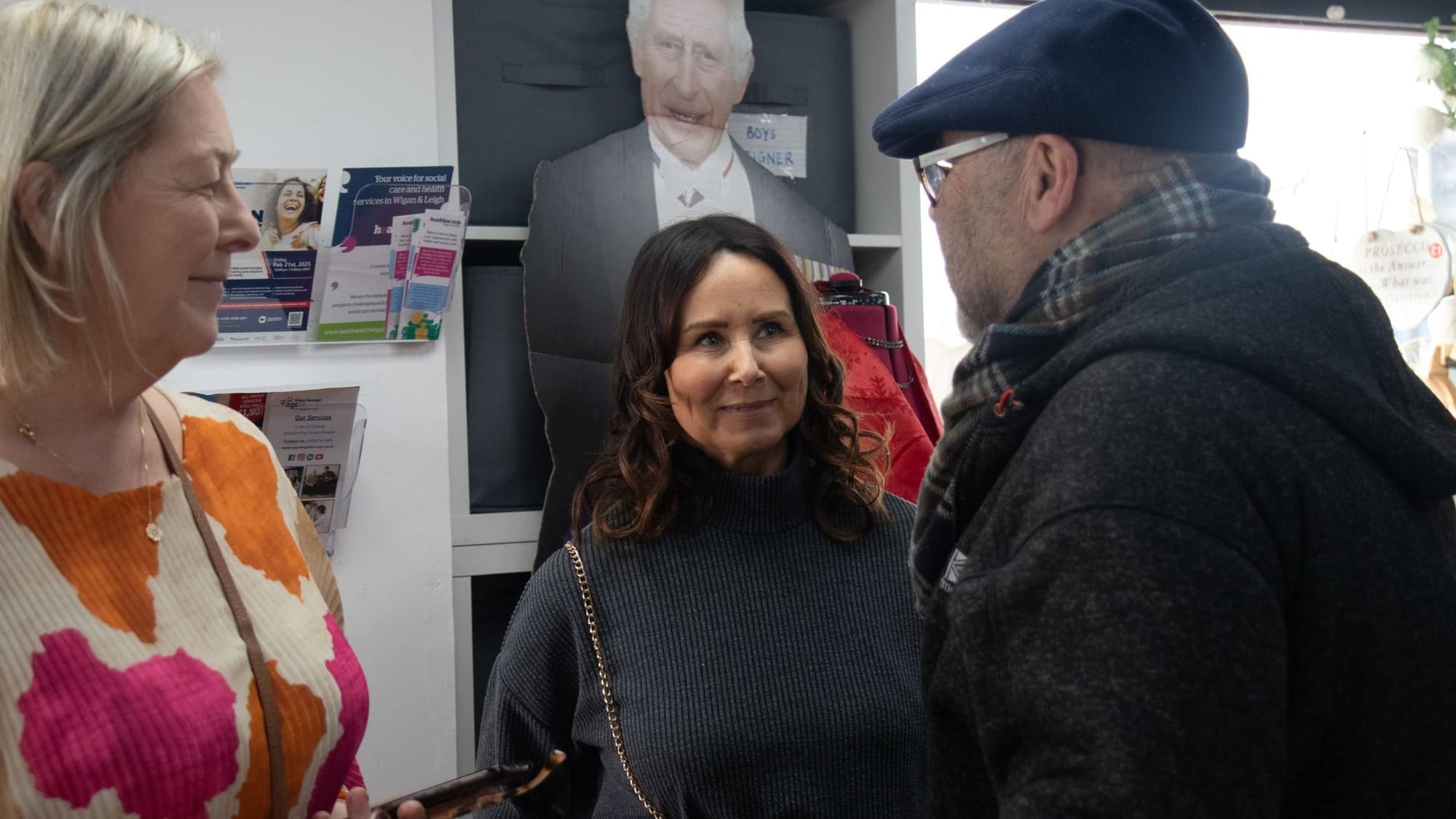
Recalling Laura’s early days at the lounge, navigating her cancer diagnosis alone. “She was struggling”, Margaret says. “Then, during a breast cancer screening session, we mentioned Maggie’s, a support network for people with cancer. I told her about it, and she followed it up. Now she has people around her who understand.”
Social isolation has a significant impact on physical and mental health, with research showing that loneliness increases the risk of early mortality and is linked to conditions such as depression, heart disease and cognitive decline. The government, despite acknowledging the rise of loneliness, launched the “Loneliness Strategy” in 2018, which includes funding for community initiatives such as lounges, aimed at tackling the issue across all age groups.
But in the meantime, there are places like this—a converted back room behind a charity shop where tea is served with empathy and where a simple “biscuit?” carries the weight of care and belonging.
As Maureen Holcroft, founder of Daffoldils Dreams, puts it: “People need to know they matter. That someone will notice if they don’t show up. That they’re not invisible.”
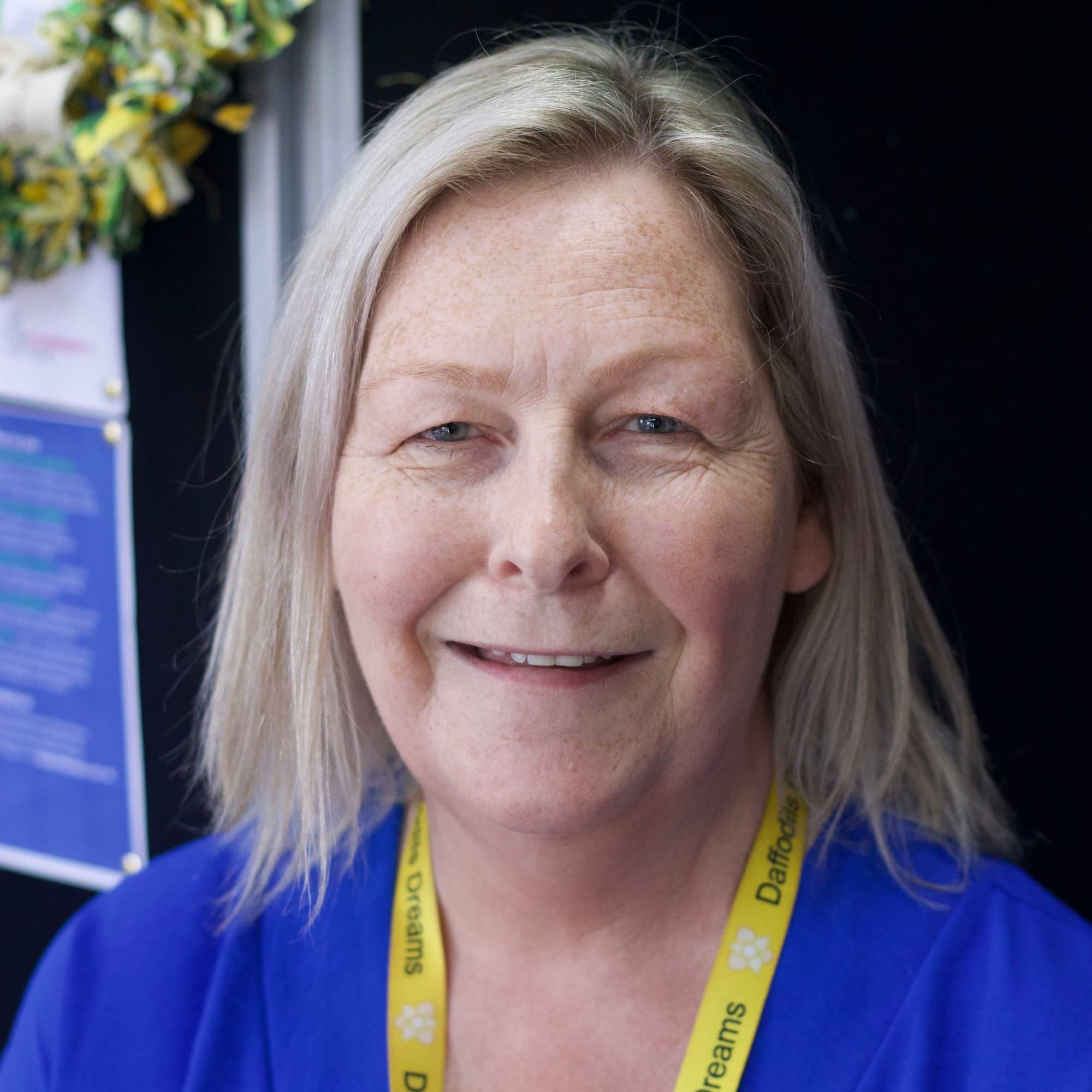
Community matters because it reminds us that we’re not alone—not in our struggles, our worries, or our hopes. In times of isolation and loneliness, even the smallest sense of connection can be transformative. A strong community doesn’t just offer practical help, but emotional reassurance—a feeling of belonging that can lift someone out of silence and into a space where they are seen, heard, and valued.
The future of loneliness in the UK may depend not only on policy or funding, but on whether we choose to invest in places like this, where someone always remembers your name and offers you a seat at the table.
If you enjoyed reading this article about tackling loneliness, please consider supporting the Howfen Journal to keep on publishing this sort of content. We tell real people's stories, but we can't do it without you.




